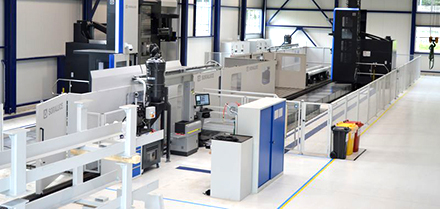The sawmilling and timber processing sectors are developing new skills as the industry undergoes rapid digital transformation and technical progress. State-of-the-art equipment is being integrated into workplaces to increase productivity and produce innovative products, including cross laminated timber (CLT) and glue laminated timber (GLT). Source: Timberbiz
Unique expertise is required for working with these new timber products and processes.
Operators, line technicians, and production supervisors need to be thoroughly familiar with the operation of sawmills, log yards and wood product processing plants, so that they can support quality processes, problem solve and perform some types of equipment maintenance.
They also need to have effective communication, decision making and teamwork skills and an understanding of health, safety, environment protection.
Skills Impact, a not-for-profit, industry-owned organisation that works across Australia to benchmark learning and skills standards for industry, has released the final draft qualifications and units of competency for timber and wood products operations and job roles are they now available for validation and comment.
They have been updated to meet current skill needs, facilitate efficient training delivery and provide clear career pathways for school leavers, new entrants and existing workers.
The Certificates II and III in sawmilling and processing and timber manufactured products have been renamed, consolidated and updated to reflect skills and knowledge to perform a variety of timber production roles.
This includes generic workplace skills in areas such as maintaining personal and team performance, problem solving, and complying with health, safety, quality and chain of custody and environmental standards.
Specialised technical skills in areas such as equipment operation and maintenance, process monitoring, product testing and grading in CLT and GLT production, plywood and laminated veneer lumber (LVL) production or reconstituted wood panel production are also included.
The Certificate IV in Timber Processing has been renamed to the Certificate IV in Timber and Wood Products Operations and updated to provide future production supervisors and technicians with skills required to manage technical operations, production issues, performance, equipment maintenance, and quality and safety requirements of a timber or wood products operation.
Feedback received on the draft units of competency during the ‘Drafts Available’ stage was positive, indicating that the updated qualifications support relevant skills for timber production operators and processing sites.
Each occupational level has unique requirements for skills development and professional growth, and feedback indicated that the qualifications represent this appropriately.
The draft documents will be available on the Skills Impact webpage for validation and feedback from 1 to 15 April 2022 visit https://www.skillsimpact.com.au/







